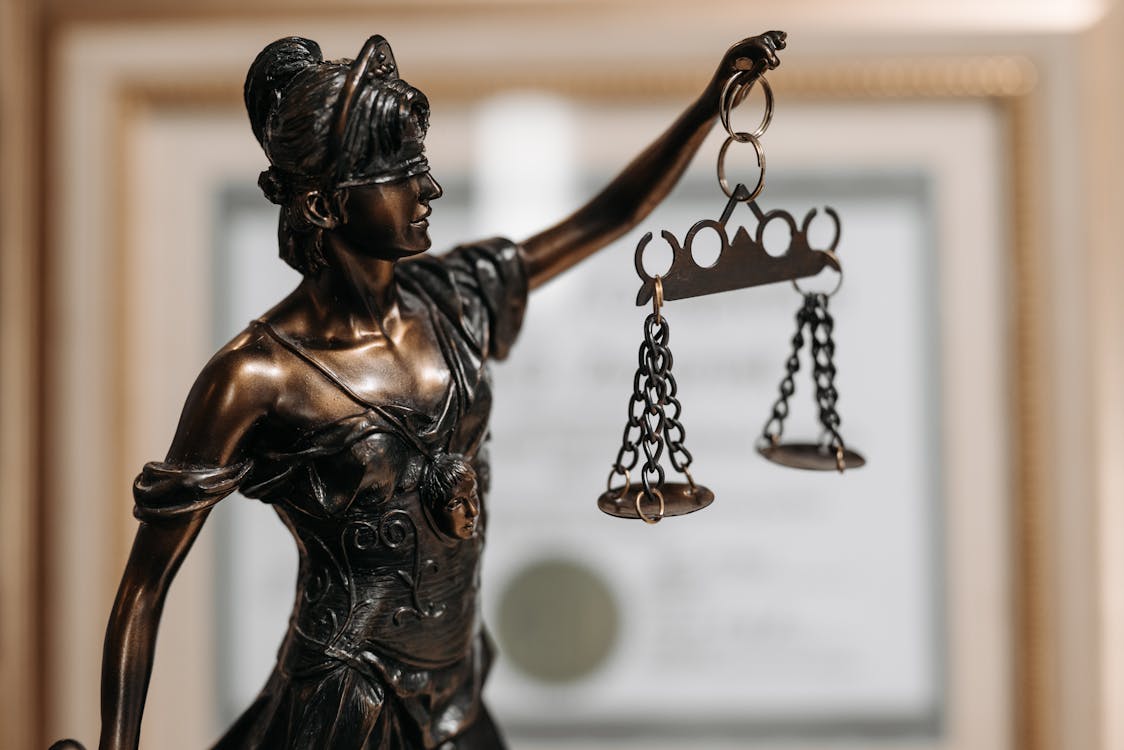Should Churches Be Taxed?
Author: ChatGPT
April 25, 2023
Introduction
📝 Let's talk taxes and churches! 🏛️🙏
For centuries, the issue of whether or not churches should be taxed has been debated among people. This topic is complex and tricky as it can be a sensitive issue for many people. It is important to examine this subject thoroughly from different angles before coming to a conclusion.
👍 Pros of Taxing Churches:
One argument for taxing churches is that it would provide more revenue for the government. Churches are granted tax-exempt status because of their charitable work and community programs, but some believe that they should still contribute to the national tax revenue. By taxing churches, governments can collect more money that could be used for various public services.
Another benefit of taxing churches is that it would promote fairness in taxation. Many non-religious organizations have to pay taxes, and some argue that it is unfair that churches do not have to pay taxes when they operate in a similar fashion. Taxing churches would create a more equitable system for all.
👎 Cons of Taxing Churches:
On the other hand, some believe that taxing churches would violate the separation of church and state. This principle ensures that the government cannot interfere with or influence religious organizations. Taxing churches could be seen as an attempt by the government to control or regulate religion, which goes against this principle.
Furthermore, some argue that churches provide valuable and necessary services to their communities, and taxing them could hinder these efforts. Many churches offer free counseling, food pantries, and other social services to those in need. Taxing churches could decrease their ability to provide these services, which could harm their communities.
💰 Legal Implications:
The legal implications of taxing churches are complicated. Because of their tax-exempt status, churches have certain rights and responsibilities in the eyes of the law. Taxing churches could potentially open them up to legal challenges, and there is no clear precedent for how this would be handled.
In conclusion, the issue of taxing churches is one that requires careful consideration from all angles. There are valid arguments for and against taxing churches, and any decision made in this area will likely have significant legal and societal implications.
The Pros of Taxing Churches
👋 Hi there! Interesting topic! Let me see if I got it right. So, you're saying that taxes on churches could potentially bring more money to the government, right? That's correct! But have you also considered that this money could be used to improve public services that directly benefit people? Imagine how the funds could be used to improve schools, hospitals, and infrastructure in your community!
Moreover, it's worth considering that taxing churches could potentially reduce inequality. Some argue that wealthy religious organizations should pay their fair share in taxes, just like other businesses. This could help ensure that everyone is doing their part to support the community. By leveling the playing field between religious organizations and other businesses, it could create a fairer system for all.
On the other hand, some argue that churches serve important social functions that should be exempt from taxation. What do you think about that?
🤑💒💵
Taxing churches could indeed be a way to reduce corruption within religious organizations. Right now, churches enjoy a tax exemption status that makes them less accountable to the government. But making them pay taxes would make them more accountable and could help expose any financial misdeeds or fraud.
This could also lead to greater transparency within religious organizations, benefiting both members and non-members. When churches have to disclose their finances to the government, it would be easier for members to know where the money is being spent and to hold their leaders accountable. This could also increase trust in the organization, leading to more people joining and supporting it.
The issue of taxing churches is definitely a controversial one, but it's important to consider all sides of the argument. While there are benefits to taxing churches, there are also arguments against it. Ultimately, the decision should be made with careful thought and consideration.
👋 Hey there!
Taxation of churches is a controversial topic that has many sides, but the question is, is it a good idea to tax churches? Some people think so, and there are some good reasons to support this idea.
One reason is that it could help prevent churches from abusing their tax-exempt status. If churches are taxed, they would be more accountable for how they use their funds. For example, if a church is using its resources in ways that don't align with its mission, like investing in real estate or stocks instead of helping people in need, they can be held responsible for their actions.
On the other hand, there are those who believe that taxation would infringe on religious freedom. However, it's worth mentioning that the First Amendment already limits the government's power to interfere with religion.
There is also the argument that taxing churches would lead to a significant loss in revenue for the government. While this might be true, it's worth noting that churches still benefit from many government-funded services and infrastructure, such as roads, police, and fire departments.
Overall, while the debate on whether to tax churches is complex, it's important to consider the implications of leaving churches untaxed. By holding churches accountable for how they use their resources, we can ensure that they are fulfilling their mission of serving their community. What do you think? 🤔

The Cons of Taxing Churches
🤔It's a complex topic, but let's explore both sides.
On the one hand, some argue that taxing churches would infringe on their First Amendment rights to freedom of religion. They argue that churches play a unique role in society by providing spiritual guidance to individuals and communities, which cannot be measured in monetary terms. They also claim that taxing churches could inhibit their ability to provide essential services and programs to their members and wider communities.
On the other hand, proponents of taxing churches argue that religious organizations should not be given special treatment under the law. They assert that churches, like any other institution or business, receive benefits and services from the government, such as police protection, infrastructure support, and tax breaks. Therefore, they argue that churches should contribute their fair share of taxes to support these services.
It's important to note that, currently, churches are only exempt from paying taxes on income generated from activities directly related to their religious mission, such as donations or sales of religious literature. However, churches are still required to pay property taxes on any land or buildings they own.
Additionally, there are concerns about how taxing churches could affect their independence and autonomy. For example, if a church received tax-exempt status, it could be pressured to refrain from engaging in certain political or social issues that may be controversial.
Overall, the debate over taxing churches is complex and multifaceted. It raises important questions about the role of religion in society, the relationship between church and state, and the responsibilities of different institutions to contribute to the common good. 🤝
👋 Hey there! That's a great point that you brought up about the debate on whether or not to tax religious institutions. Some folks believe that it would be unfair to tax churches because they offer important services to society such as charity work and spiritual guidance. These services do not generate any income for the government, so they argue that they should be exempt from taxation.
🧐 However, there are those who argue that churches should be taxed like any other business or non-profit organization. They argue that religious institutions are often involved in commercial ventures and that taxing them would create a level playing field. Additionally, some feel that religious institutions have too much political influence and that taxing them would help to limit their power.
💡 In the end, the debate on whether or not to tax religious institutions will likely continue. It's important to consider all perspectives and to weigh the potential benefits and drawbacks of each approach. What do you think? Do you believe that churches should be taxed or exempt from taxation? Let me know your thoughts!
🤔It's really important to consider all the potential impacts of taxing churches. While it may seem like churches should be subject to the same financial responsibilities as other organizations, we need to think about the potential downsides.
💼One major concern is that taxing churches could lead to more bureaucracy and paperwork. Churches may need to hire accountants and lawyers to deal with the new financial expectations, which could take away from time spent on providing services or engaging with members.
👥This decreased efficiency could ultimately hurt those who rely on religious organizations for assistance or spiritual guidance. Churches have long been important community resources, and we need to make sure any policy changes don't cause unintended harm.

Legal Implications Of Taxing Churches
🤔 Did you know that in some countries, churches are exempt from paying taxes on their property, income, and activities because of their religious status? This means that they're able to keep all of the money that they generate, without having to pay the government a portion of it. 😇
On the other hand, there are some arguments in favor of taxing churches. Some people believe that churches should be treated like any other organization that generates income, and should therefore be taxed like any other business. The money that would be generated from taxing churches could be used to fund important social programs and public services. However, there are also concerns that taxing churches could infringe on their religious freedom and autonomy. 🤔
It's also important to note that not all churches are the same. Some churches are relatively small and have limited financial resources, while others are massive organizations with extensive real estate holdings, investment portfolios, and revenue streams. As such, the decision about whether or not to tax churches should be made on a case-by-case basis, taking into consideration the specific circumstances of each individual church.
Overall, the legality of taxing churches is a complex and controversial issue that requires careful consideration and research. Before making any decisions, it's important to thoroughly understand the applicable laws, as well as the arguments for and against taxing churches. 📚

Conclusion
🤔💭 It's important to understand that churches have been historically exempt from taxation, which is rooted in the idea of separation of church and state. However, recently there have been debates about whether or not churches should be taxed because of the financial benefits it could bring to the government.
🏛️💰 Some argue that churches should be taxed because they operate like any other business or organization and benefit from public services, so they should contribute to the funding. On the other hand, many believe that taxing churches would infringe on religious freedom and could be seen as government interference in religious affairs.
✝️💒 It's worth noting that even though churches are exempt from paying taxes, they still have to comply with other financial regulations such as filing tax returns and reporting their finances to the government.
💡👥 Ultimately, this is a complex issue that requires in-depth understanding of both the legal and cultural implications. It's important to have open-minded conversations and consider all perspectives before coming to a conclusion about whether or not churches should be taxed.

How Long Does It Take To Sell Stock And Get Money?
Discover the answer to one of the most frequently asked questions in the world of finance - learn how long it takes to sell stock and receive your earnings.

What Are High Dividend Stocks?
Discover how investing in high dividend stocks can potentially provide a steady income stream and increase your long-term returns in the stock market.

Are Data Science And Machine Learning The Same?
Data science is a field of study that focuses on extracting insights from large amounts of data. It involves using various techniques such as machine learning, natural language processing, statistics, and data mining to analyze data sets and uncover patterns or trends.

Are Remarkable Tablets Worth It?
Are you looking for a device that can replace your notebooks and printed documents? If so, you may have heard of the reMarkable 2 tablet.
